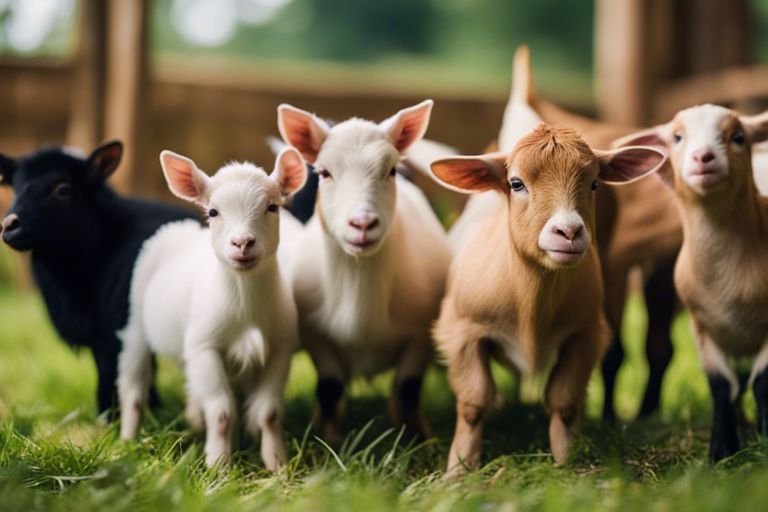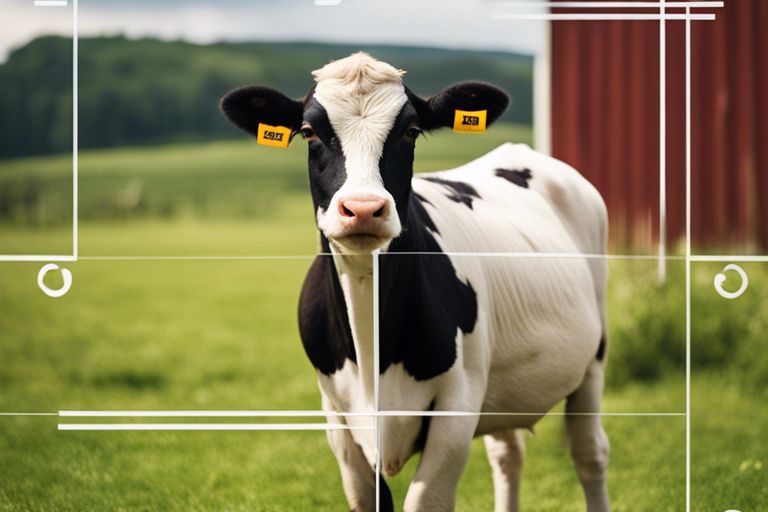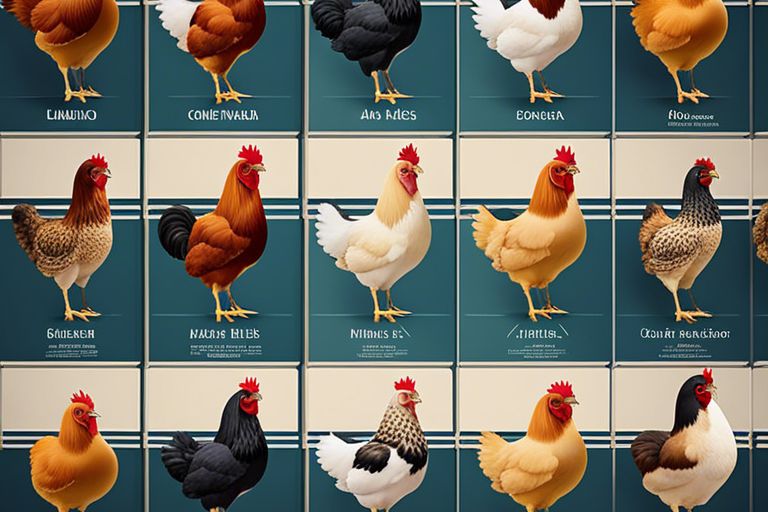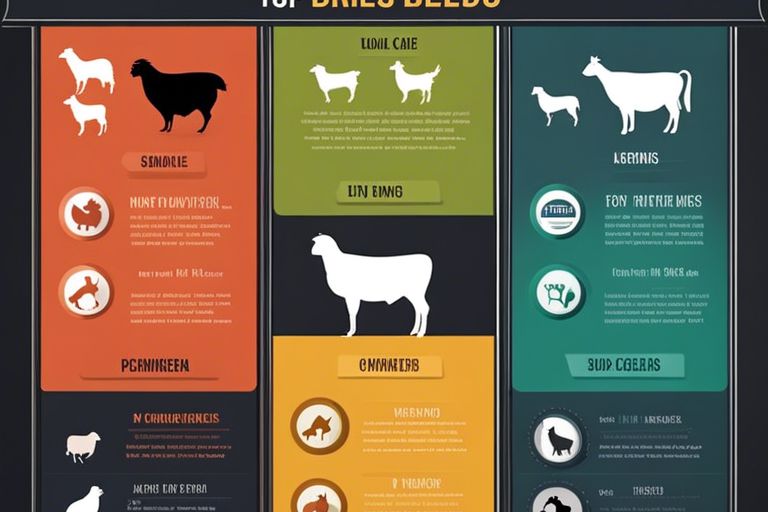Unveiling the mesmerizing world of exotic livestock breeds for specialty farming unveils a plethora of unique and intriguing opportunities for farmers seeking something truly extraordinary. These rare and uncommon animal breeds offer a distinct flavor to the agricultural landscape, promising both challenges and rewards for those bold enough to venture into this uncharted territory. From the majestic Ouessant sheep to the striking Nubian goats, each exotic breed brings its own set of characteristics and requirements, adding a touch of excitement and novelty to the traditional farming practices. Join us on this fascinating journey as we probe into exotic livestock breeds and discover the wonders they have to offer for those willing to embrace the unknown.
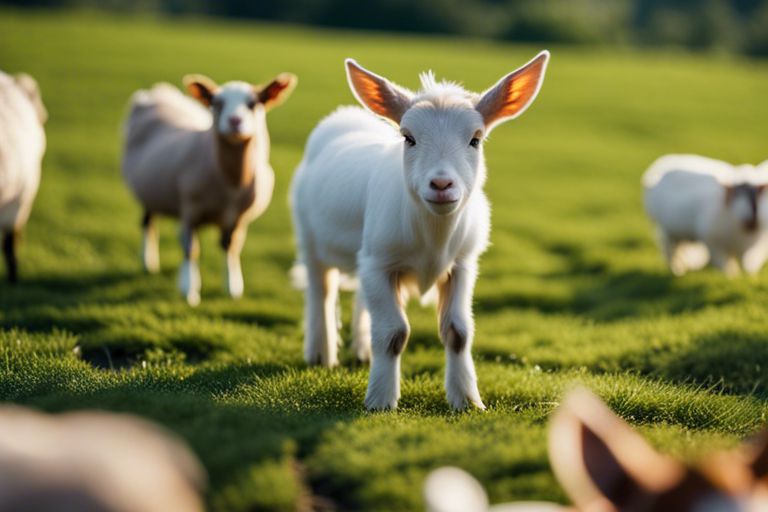
Exotic Livestock Breeds for Enhanced Diversity
Benefits of Genetic Diversity in Livestock
Any successful livestock farming operation relies on genetic diversity to ensure the health, productivity, and resilience of the animals. By introducing exotic livestock breeds into your farming practices, you can enhance the gene pool within your herd. Genetic diversity can help reduce the risk of inbreeding, improve disease resistance, and enhance overall livestock performance.
Examples of Exotic Livestock Breeds
Genetic diversity can be enriched by incorporating exotic livestock breeds such as the Nguni cattle from Africa, Icelandic sheep, or Pekin ducks from China. Each of these breeds brings unique characteristics such as adaptability to specific climates, disease resistance, and valuable traits for specialty products like fine wool or gourmet meat.
To truly harness the benefits of genetic diversity in livestock farming, it is necessary to research and carefully select exotic breeds that align with your farming goals and environment. By strategically incorporating these exotic breeds into your herd, you can create a more resilient and diverse livestock population that can thrive in various conditions.
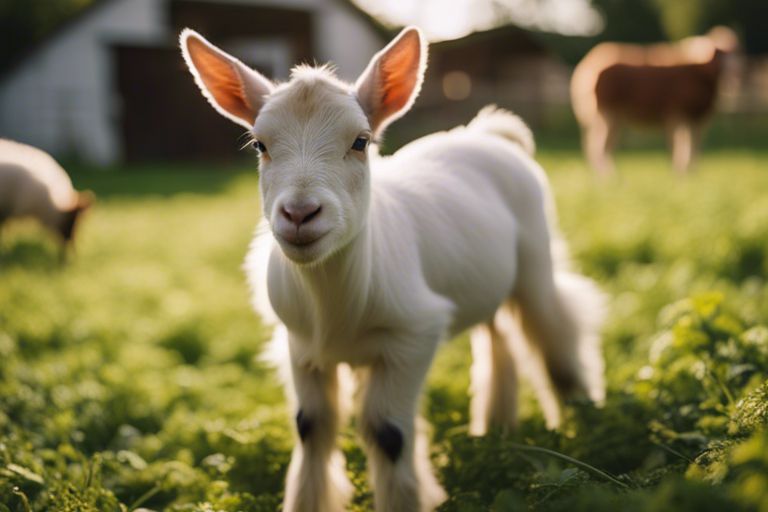
Special Considerations in Raising Exotic Livestock
Climatic Adaptability and Habitat Requirements
Some exotic livestock breeds may have specific climatic adaptability requirements and habitat needs that differ from traditional farm animals. It is important to research and understand the environmental conditions necessary to ensure the well-being and productivity of exotic breeds on your farm.
Health and Veterinary Care
Some exotic livestock breeds may have unique health considerations that require specialized veterinary care. It is vital to work with a veterinarian who has experience with exotic animals to ensure that proper healthcare protocols are followed and any potential health issues are addressed promptly to maintain the overall well-being of the animals.
Veterinary care for exotic livestock may include specific vaccinations, parasite control measures, and regular health check-ups to monitor for any signs of illness. Finding a veterinarian with expertise in exotic livestock can be crucial in maintaining the health and welfare of these unique animals on your farm.
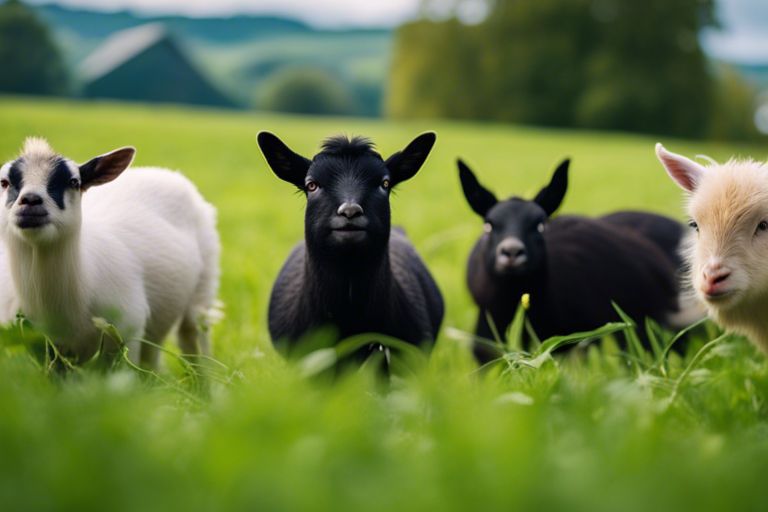
Market Potential and Niche Products
Exotic Livestock and Specialty Products
The demand for exotic livestock breeds and specialty products is on the rise as consumers seek unique and high-quality options. These niche products offer farmers the opportunity to stand out in a competitive market and cater to specific customer preferences.
Marketing Strategies for Specialty Farmers
Marketing plays a crucial role in the success of specialty farmers looking to promote their exotic livestock breeds and specialty products. By highlighting the unique qualities of their offerings and targeting niche markets, farmers can attract customers who are willing to pay a premium for these specialized products.
Plus, utilizing social media platforms and attending local farmers markets can help specialty farmers reach a broader audience and build brand awareness. Collaborating with chefs, restaurants, and artisanal food producers can also create valuable partnerships that open up new distribution channels for these unique products.
Ethical and Regulatory Considerations
Welfare Issues in Exotic Livestock Farming
Considerations for the welfare of exotic livestock in farming are paramount. Special care must be taken to ensure these animals receive appropriate housing, nutrition, and medical attention. Due to their unique nature, exotic breeds may have specific requirements that need to be met for their well-being, making it vital for farmers to be well-informed and prepared to provide for their needs.
Legal Aspects and Biodiversity Protection
Regulatory bodies play a crucial role in overseeing the farming of exotic livestock breeds to ensure compliance with animal welfare standards and biodiversity conservation laws. Farmers must be aware of the legal requirements and restrictions surrounding the breeding, importation, and trade of exotic animals. These regulations are in place to protect the welfare of the animals and preserve biodiversity in farming practices.
Plus, conservation efforts are also an vital aspect of biodiversity protection in exotic livestock farming. Some exotic breeds may be endangered, and special permits or agreements may be required to ensure their continued preservation and sustainable use within farming operations. Farmers must work closely with conservation organizations and regulatory authorities to adhere to these regulations and contribute to the conservation of rare and valuable genetic resources.
Conclusion
As a reminder, exploring exotic livestock breeds for specialty farming can open up new opportunities for farmers looking to diversify their operations. By considering unique breeds that are well-suited to niche markets or have specific traits desired by consumers, farmers can differentiate themselves and potentially increase profits. However, it is imperative to thoroughly research and understand the unique requirements of exotic breeds before incorporating them into a farming operation to ensure their well-being and success.
FAQ
Q: What is the importance of exploring exotic livestock breeds for specialty farming?
A: Exploring exotic livestock breeds for specialty farming helps diversify agriculture, preserve genetic diversity, and meet the growing demand for unique products.
Q: How can I find exotic livestock breeds suitable for specialty farming?
A: You can research online databases, attend livestock shows and auctions, or contact specialty breed associations to find exotic livestock breeds for specialty farming.
Q: What factors should I consider before selecting exotic livestock breeds for specialty farming?
A: Consider factors such as climate suitability, feed requirements, space availability, market demand, and your level of experience before selecting exotic livestock breeds for specialty farming.
Q: What are some examples of exotic livestock breeds suitable for specialty farming?
A: Examples include alpacas, emus, miniature cattle, ostriches, and water buffalo, which are known for their unique characteristics and products.
Q: How can I ensure the well-being and health of exotic livestock breeds on my specialty farm?
A: Provide proper nutrition, veterinary care, shelter, and protection from predators to ensure the well-being and health of exotic livestock breeds on your specialty farm.
Q: What are the potential challenges of raising exotic livestock breeds for specialty farming?
A: Challenges may include higher initial investment costs, specialized knowledge requirements, limited market demand, and specific infrastructure needs for exotic livestock breeds on a specialty farm.
Q: How can I market products from exotic livestock breeds in specialty farming?
A: Utilize online platforms, farmers’ markets, specialty stores, and partnerships with restaurants or artisans to market products such as meat, fiber, eggs, or milk from exotic livestock breeds in specialty farming.
